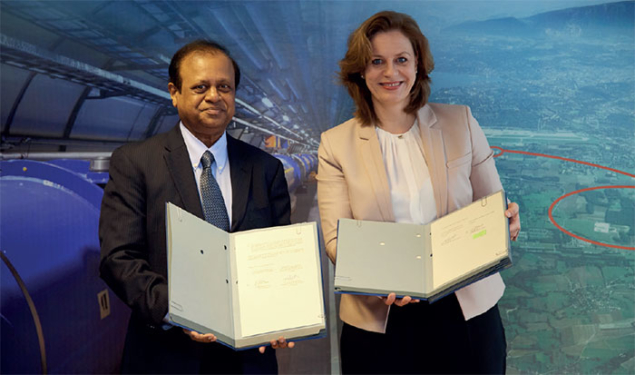
Image credit: M Brice/CERN
On 8 February, Sri Lanka and CERN entered into an International Co-operation Agreement (ICA) concerning scientific and technical co-operation in high-energy physics. The agreement was signed by Susil Premajayantha, Sri Lankaʼs hon. minister of science, technology and research, and Charlotte Warakaulle, CERNʼs director for international relations.
The new agreement follows an Expression of Interest signed in June 2015 by Sri Lanka ambassador Ravinatha Aryasinha and the then Director-General Rolf-Dieter Heuer, which already incorporated Sri Lanka into CERN’s high-school teacher and summer-student programmes. Previously, scientists from Sri Lankan universities have participated in LHC experiments within the frameworks of sabbatical leave or similar programmes, whereas others have participated as visiting scientists employed by universities in a third country.
With the partnership now formalised via the new ICA, students, scientists, engineers and research institutes in Sri Lanka will be able to benefit from broader and more sustained participation in CERN, and thus be exposed to cutting-edge technology and research in high-energy physics.
“ICAs help to strengthen the global network for particle physics, which is essential for the future of the discipline and for fundamental research more generally,” says Warakaulle. “It is significant to see that a smaller, developing country is emphasising fundamental research and making the connection with CERN a priority. It testifies to an understanding of the value of fundamental research, which is commendable in a country that is facing other challenges. It also further enhances the CERN connection with South Asia, following the associate memberships of Pakistan and India.”








